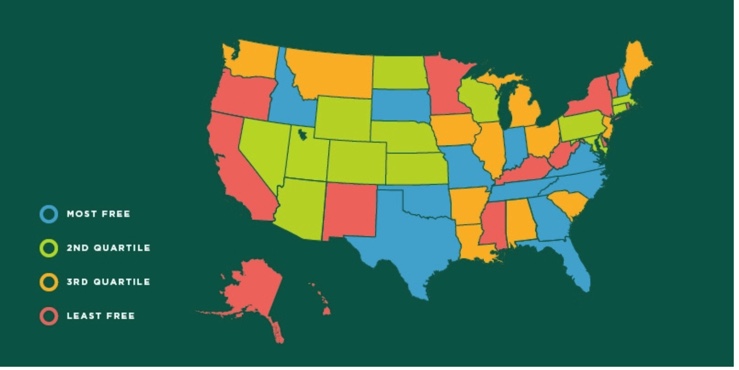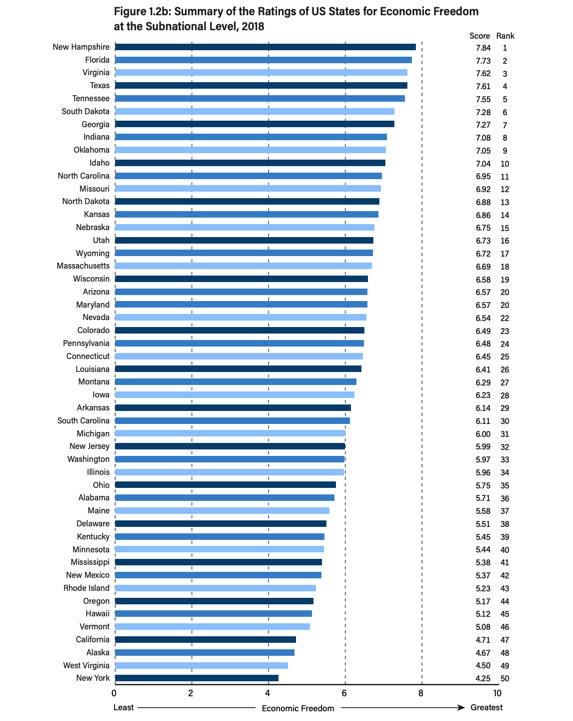Minnesota has consistently ranked among the least free states in the US historically
Just recently, the Fraser Institute released the 16th edition of its Economic Freedom For North America. This is a report that ranks freedom of different regions of the three countries in North America; Mexico, Canada, and the United States. And according to the new report, Minnesota ranked 40th freest state in the United States in 2018.

Source: Fraser Institute

Source: Fraser Institute
Historically, Minnesota has consistently ranked low on freedom compared to other states. In fact, between 1981 and 2018, Minnesota has scored well below the national US average freedom score as calculated by the Frasier Institute
As explained by the report,
The freest economies operate with minimal government interference, relying upon personal choice and markets to answer basic economic questions such as what is to be produced, how it is to be produced, how much is produced, and for whom production is intended. As government imposes restrictions on these choices, there is less economic freedom.
There is strong evidence that economic freedom is strongly correlated with economic development. For instance, “in the United States, the relatively free Virginia does much better than the relatively unfree West Virginia.” This is so because
any transaction freely entered into must benefit both parties; any transaction that does not benefit both parties would be rejected by the party that would come up short. This has consequences throughout the economy. Consumers who are free to choose will only be attracted by superior quality and price. Producers must constantly improve the price and quality of their products to meet customers’ demands or customers will not freely enter into transactions with them. Many billions of mutually beneficial transactions occur every day, powering the dynamic that spurs increased productivity and wealth throughout the economy.
Restrictions on freedom work to achieve the opposite; they restrict people from transacting freely. This in turn works to suppress innovation and productivity. In an unfree environment, individuals and businesses instead invest in compliance activities and spend money paying high transaction costs brought about by government intervention.
Burdensome taxes are a huge contributing factor
Minnesota generally performs worse than its neighbors across different measures of freedom. For instance, last year the Doing Business North America ranked Minneapolis 40th in the nation on ease of doing business;
The study “intends—through the creation of comparable measures over time and its overall Ease of Doing Business Score—to contribute to the understanding of which regulatory environments can produce the best economic outcomes for the largest number of people.”
The report, Doing Business North America, scored and ranked cities on six categories on the ease of starting and operating a small- or medium-sized business: (1) Starting a business, (2) Employing workers (3) Getting electricity (4) Registering property (5) Paying taxes and (6) Resolving insolvency.
Minneapolis ranks 40th with an overall score of 76.41 on Ease of Doing Business passing Milwaukee, Wisconsin but ranking lower than its other three neighbors: Sioux Falls, South Dakota; Fargo, North Dakota; and Des Moines, Iowa.
And for both the Economic Freedom of North American and the Doing Business North America rankings, burdensome taxes were one of the biggest reasons for Minnesota’s low score on freedom.